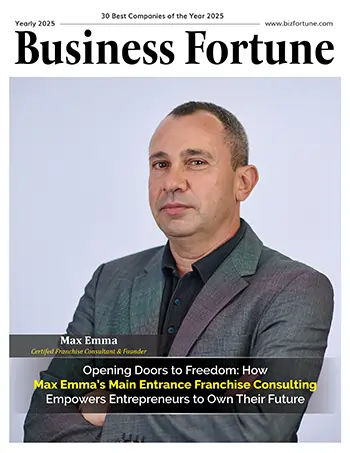Home Others Crypto Protecting Your Crypto: Tips t...
Protecting Your Crypto: Tips to Avoid Scams and Frauds
Crypto

Business Fortune
11 September, 2024
Scammers are constantly searching for new ways to defraud people, and the explosive rise of crypto currencies in recent years has given rise to several fraud opportunities. 2021 saw a record-breaking year for crypto currency crime; fraudsters stole $14 billion in crypto currency that year, according to a research by blockchain data company Chainalysis. Knowing the dangers associated with crypto currency is crucial if you're interested in it. Learn more about typical Crypto currency Security Tips, scams, Identifying fake ICOs, how to detect them, and how to avoid them.
Crypto currency Security Tips to Avoid Scams and Frauds
Secure Crypto Wallets: You need a Secure Crypto wallet with private keys in order to invest in cryptocurrencies. To take part in an investment opportunity, if a company asks you to provide your keys, it's probably a hoax. Don't share your wallet keys with anyone. Also be aware of Phishing Scams in Crypto, by which scammers target people using crypto software wallets. In a string of letters and numbers that act like a password and are required to access crypto currency.
Watch your wallet app: Send a tiny amount the first time to be sure crypto currency wallet software is legitimate, or to check Safe Crypto currency Exchanges.
Invest only on items you are familiar with: When deciding whether or not to invest in a crypto currency, it's best to take a step back and conduct more study if you have any questions about how it operates.
Take time to think: Scammers tend to use high-pressure techniques, such as making immediate promises of rewards or discounts, to get you to deposit your money. Before you invest any money, take your time and do your crypto security best practices, do your own research to Secure Crypto Wallets and Safe Crypto currency Exchanges.
Watch out for social media advertisements: Frauds involving crypto currency are frequently advertised on social media platforms. They could pretend to be legitimate by using unlicensed photos of famous celebrity, or they might make inflated claims like freebies or cash. Have a healthy dose of skepticism and conduct your own research by Identifying Fake ICOs and by doing crypto security best practices.
Download apps only from official stores: Downloading programs from these stores is safer than downloading them from other stores, even though phony software occasionally wind up there.
Investigate: The most well-known crypto currencies are real businesses. If you're unfamiliar with a particular crypto currency, do some research on it beforehand. Look for legitimate reviews and testimonies, by identifying fake ICOs, find out who owns it and how it functions, and check if there is a whitepaper available.
Is it too good to be true? Be careful of companies that make extravagant claims or guarantee returns; they are usually scams. Be careful of offers that look too good to be true, and get a safe crypto currency exchange.
Understanding Common Crypto Scams
Fake websites: Sometimes, scammers fabricate false bitcoin wallets or trading sites in order to deceive naive people. Usually, these false websites have domain names that are somewhat similar to the websites they are trying to imitate.
Phishing scams in Crypto: Information about online wallets is frequently the focus of crypto phishing schemes. Private keys for cryptocurrency wallets, which are needed to access funds within the wallet, are the target of scammers.
Pump and dump schemes: This is when scammers use social media platforms like Facebook, Twitter, and Telegram, or an email blast, to promote a specific coin or token. The price rises as traders race to purchase the coins since they don't want to miss out. The scammers sell their assets after successfully raising the price, which precipitates a crash as the asset's value plummets.
False applications: Scammers also frequently use fake apps that are available for download on Google Play and the Apple App Store to deceive cryptocurrency investors. Even though these fraudulent programs are swiftly discovered and eliminated, numerous business bottom lines are nevertheless being impacted by them.
False endorsements by celebrities: To gain the attention of possible victims, cryptocurrency scammers occasionally assume the personas of celebrities, businesses, or influencers and make claims about their support.
Giveaway frauds: Here is when scammers engage in what is referred to as a giveaway scam, where they guarantee to match or multiply the cryptocurrency delivered to them. Asserting credibility and urgency with shrewd messaging from what appears to be a legitimate social media account is common.
Scams of extortion and blackmail: Blackmail is another tactic used by scammers. They threaten to expose the recipient unless they reveal private keys or send cryptocurrency to the scammer in emails they pretend to have a record of the explicit websites they visited.
Scams using cloud mining: Cloud mining refers to businesses that let you hire their mining hardware in return for a set charge and a cut of the money you are intended to make.
Identifying Fake ICOs: Start-up cryptocurrency enterprises can acquire capital from potential investors through an initial coin offering, or ICO. Customers that send in active cryptocurrencies like bitcoin or another well-known cryptocurrency are typically given a discount on the new coins.
Phishing Attacks: How to Spot and Avoid Them
Phishing schemes in the cryptocurrency space target users of bitcoin software wallets. Scammers specifically demand the private keys of a cryptocurrency wallet, which are a combination of letters and digits that serve as a password and are necessary to access cryptocurrency.
Their approach is in line with the script of other common scams: They ask holders to enter private keys on a specifically designed website after sending them an email with links. After gaining access to this data, the hackers take off with the victim's bitcoin.
You should take a few precautions to avoid falling victim to a scam. Never give money to someone you contact about financial difficulties, click on links, or call numbers. Refuse requests to share your private cryptocurrency keys as well. No one requires those keys for a valid cryptocurrency transaction; they manage your wallet access and cryptocurrency.
Ponzi Schemes in Crypto: Red Flags to Watch
An investment scam known as "Ponzi scheme" uses money obtained from new investors to pay off old investors. Ponzi scheme operators frequently make the unfulfilled promise to invest your money and make large returns with little to no risk.
Ponzi scheme “red flags”:
-
High profits for negligible or no risk. There is risk associated with every investment, and the larger the return, the higher the risk. Any investment opportunity that is "guaranteed" should raise serious doubts.
-
Returns that are too constant. Over time, investments typically have ups and downs. Any investment that consistently yields profits regardless of the state of the market should raise suspicions.
-
Investments that are not registered. Typically, investments made through Ponzi schemes are not registered with state or federal regulators. Because it gives investors access to details about the management, goods, services, and finances of the firm, registration is crucial.
-
Unlicensed sellers. Investment professionals and firms are required by federal and state securities laws to hold a license or be registered. The majority of Ponzi schemes involve unregistered businesses or unlicensed individuals.
-
Complex, covert tactics. If you are unsure about an investment or cannot obtain all the facts you need, stay away from it.
-
Having trouble getting paid. If you don't get paid or are having trouble cashing out, be wary. Promoter of ponzi schemes occasionally tries to dissuade members from cashing out by promising even bigger returns for remaining in the scheme.
Crypto Security Best Practices for your Investments
-
Exercise caution and diligence
Investing in cryptocurrency takes extensive due research, just like any other investment. It is advisable for users to become acquainted with various cryptocurrency varieties, such as Ethereum and Bitcoin, and comprehend their features, applications, and possible hazards.
-
Cold storage for crypto wallet
Exchanges and wallets for cryptocurrencies are popular targets for hackers because of their substantial assets. Even in the event that a platform is compromised, you greatly lower your chance of losing your cryptocurrency by using cold storage for cryptos.
-
Maintain a copy of your cryptocurrency holdings
Making a safe copy of your private keys, also known as your seed phrase, is essential even outside of cold storage for cryptos and bitcoins. In the event that your device is stolen, destroyed, or broken, this guarantees you can access your funds. It's crucial to keep your backup offsite, preferably offline.
-
Make use of two-factor verification
Hackers find cryptocurrency accounts to be appealing targets, and sadly, scams like account takeovers (ATO) are frequent. An additional layer of security is added with 2FA, offering more protection. If a hacker manages to obtain your password, they won't be able to access your account without the extra code or verification step that 2FA offers.
-
Make sure your cryptocurrency wallets have strong passwords
In the complex world of cryptocurrency, having strong passwords is essential for safeguarding oneself against account takeovers. The passwords ought to be distinct and have a mix of capital and lowercase letters, digits, and special characters. They are a lot more difficult to crack because of their intricacy.
-
Stay cautious from free WiFi.
For those who work remotely or travel, public WiFi is a practical choice as it provides simple internet access. There are considerable security dangers associated with the convenience, though. The ease with which traffic on public WiFi networks can be intercepted by hackers is the main cause for concern.
-
Construct safe network architecture
While it's common knowledge that using public WiFi networks poses a security risk, protecting your home network is just as crucial. Pre-set passwords for many routers are kept by users out of convenience, so providing hackers with an easy point of entry.
-
Think about utilizing a VPN
A high-quality VPN can give your bitcoin transactions an additional layer of security, but it's not a perfect solution. Your internet traffic is encrypted via a VPN, jumbling up information such as your browsing and financial history.
Conclusion:
In today's digital environment, safeguarding oneself against bitcoin scams and frauds is crucial. This is important to get knowledge about crypto currency security tips. You may protect your assets and stay away from frequent frauds by heeding these crypto security advice. Use secure wallets at all times, exercise caution when making new investments, and confirm the authenticity of any platform or deal. Never forget that, most of the time, offers that seem too good to be true are. To protect your cryptocurrency investments, stay knowledgeable, do extensive research, and follow best practices like two-factor authentication and secure passwords. By taking these safety measures, you can move around the cryptocurrency world with greater assurance and security.


































